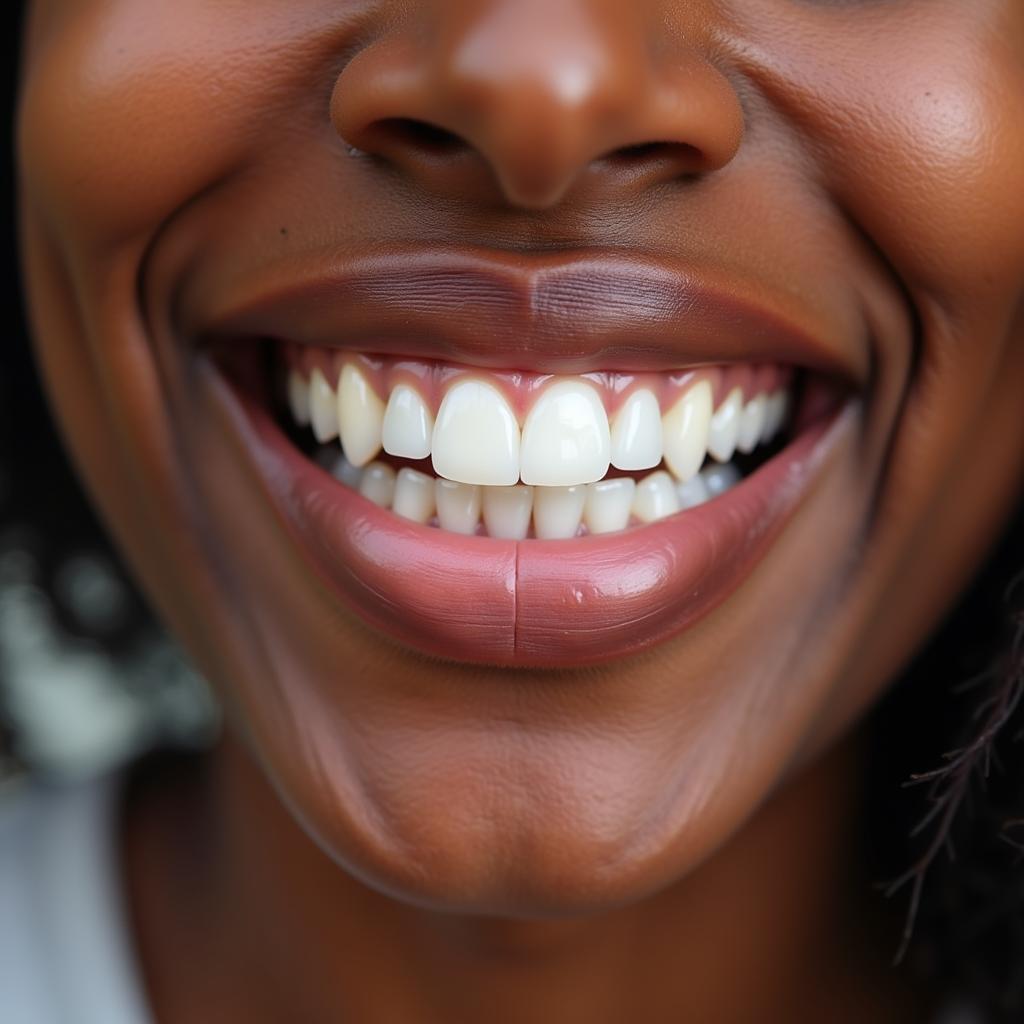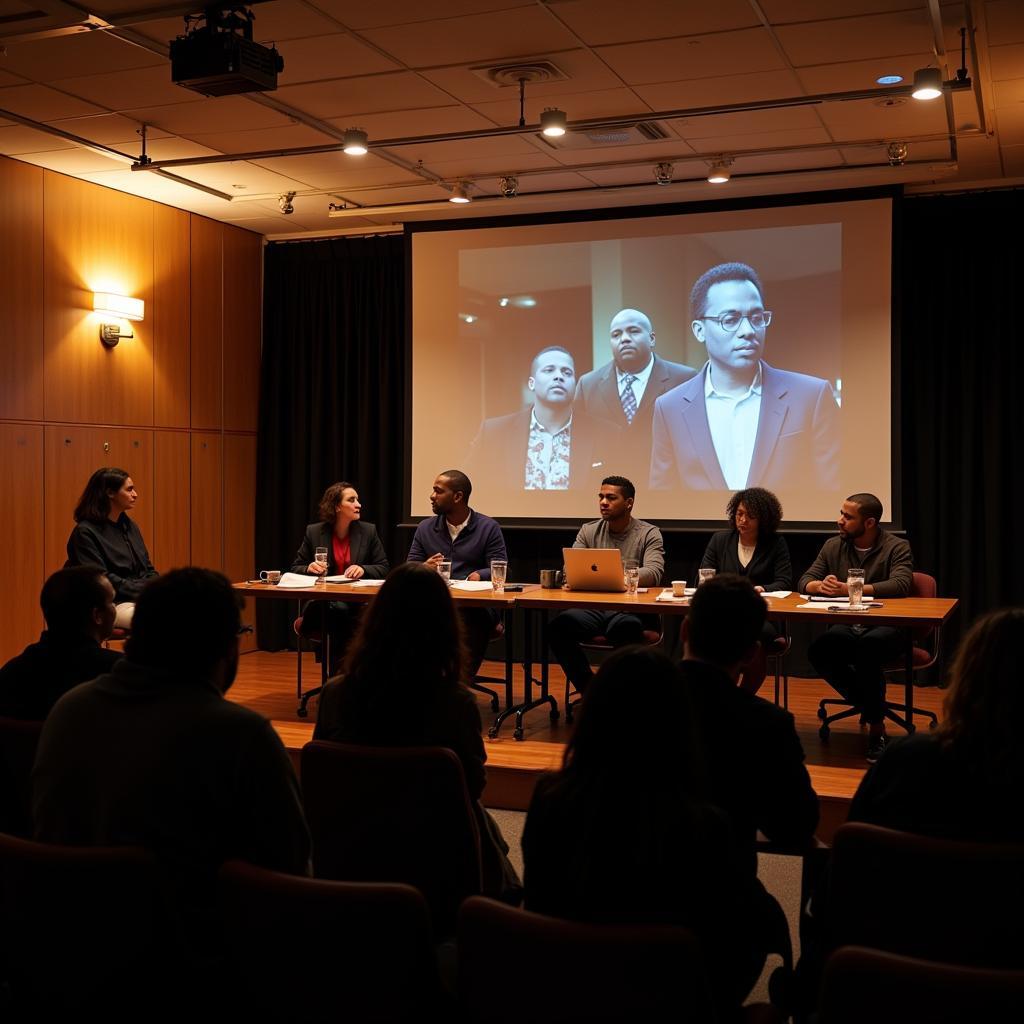Unveiling the Myths Surrounding African American Teeth
The topic of “African American Teeth” often comes with preconceived notions and stereotypes. This article delves into the intricacies of dental health within the African American community, separating fact from fiction and exploring the cultural, socioeconomic, and genetic factors that contribute to oral health disparities.
Debunking the Myths: Are African American Teeth Genetically Different?
One common misconception is that African Americans have inherently stronger or weaker teeth due to their genetics. However, scientific evidence suggests that while genetics plays a role in tooth structure and susceptibility to certain dental issues, it is not the sole determining factor in oral health. The shape, size, and even color of teeth can vary widely within any racial or ethnic group.
 Smiling African American Individual Demonstrating Healthy Teeth
Smiling African American Individual Demonstrating Healthy Teeth
The Impact of Socioeconomic Factors on Oral Health
Access to affordable and quality healthcare, including dental care, remains a significant challenge for many African Americans. Socioeconomic factors, such as poverty, lack of health insurance, and limited access to dentists in underserved communities, contribute significantly to oral health disparities.
Studies have shown a correlation between lower socioeconomic status and higher rates of untreated cavities, gum disease, and other oral health problems. This disparity highlights the urgent need for systemic changes to address these inequities and improve access to dental care for all.
Cultural Influences on Oral Health Practices
Cultural beliefs and practices also play a role in shaping oral health habits. For instance, traditional remedies or home remedies passed down through generations might not always align with evidence-based dental practices. Additionally, certain dietary habits, such as the consumption of sugary drinks and processed foods, can increase the risk of tooth decay and other dental issues.
 African American Family at the Dentist
African American Family at the Dentist
Addressing the Disparities: A Call for Action
Improving oral health within the African American community requires a multifaceted approach that tackles both individual and systemic factors. Here are some crucial steps:
- Increasing Access to Affordable Dental Care: Expanding Medicaid coverage for dental services, promoting community health centers, and supporting dental schools that serve underserved populations are essential.
- Promoting Oral Health Education: Raising awareness about the importance of oral hygiene, regular dental checkups, and healthy dietary choices is crucial, starting from a young age.
- Encouraging Diversity in Dentistry: Increasing the representation of African American dentists and dental hygienists can help bridge cultural gaps and improve patient communication and trust.
Celebrating the Beauty of Diversity
It’s vital to recognize and celebrate the diversity of smiles within the African American community. Each smile is unique and reflects the rich tapestry of cultural heritage and individual experiences. By embracing this diversity and addressing the underlying factors contributing to health disparities, we can create a future where everyone has access to optimal oral health and can confidently share their smiles with the world.
FAQs About African American Teeth
Are African Americans more prone to gum disease?
While genetics can influence susceptibility, socioeconomic factors and access to care play a more significant role in gum disease prevalence.
Is there a specific toothpaste recommended for African Americans?
No, toothpaste recommendations are based on individual needs, not race or ethnicity. Consult with a dentist to determine the best toothpaste for your specific oral health needs.
How can I find an African American dentist near me?
Online directories, local dental societies, and word-of-mouth referrals can help you find African American orthodontics near me who understands your cultural background and concerns.
Seeking Further Information?
For insightful articles on related topics, explore:
If you need assistance or have questions, please contact us at:
Phone Number: +255768904061
Email: kaka.mag@gmail.com
Address: Mbarali DC Mawindi, Kangaga, Tanzania.
Our dedicated customer support team is available 24/7 to assist you.

